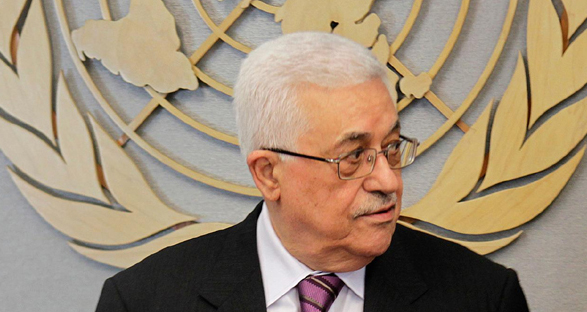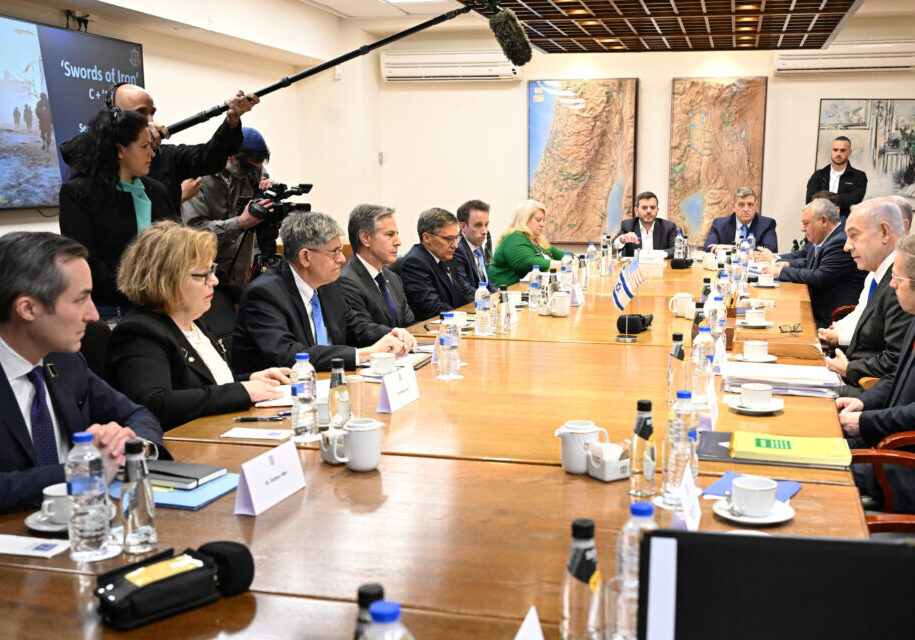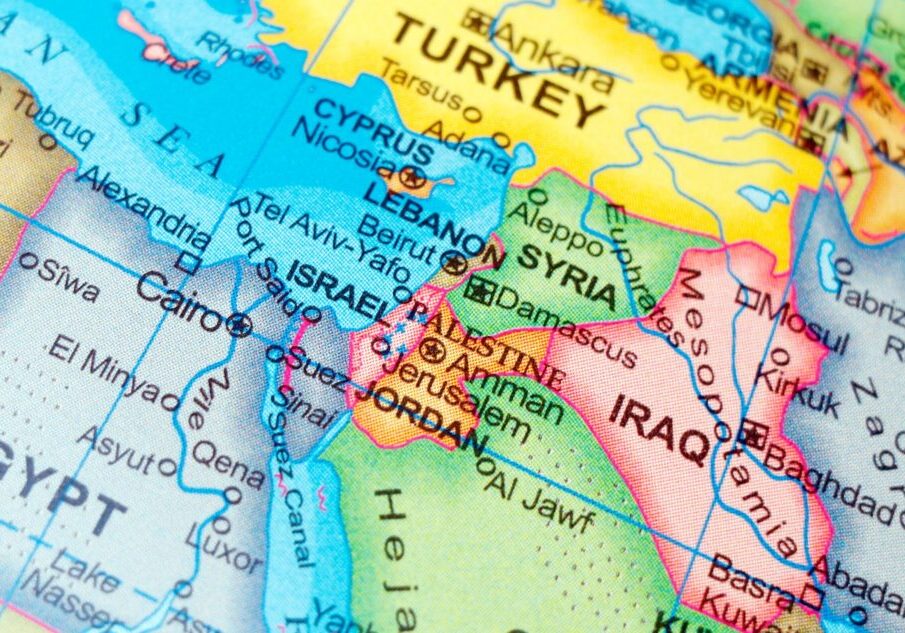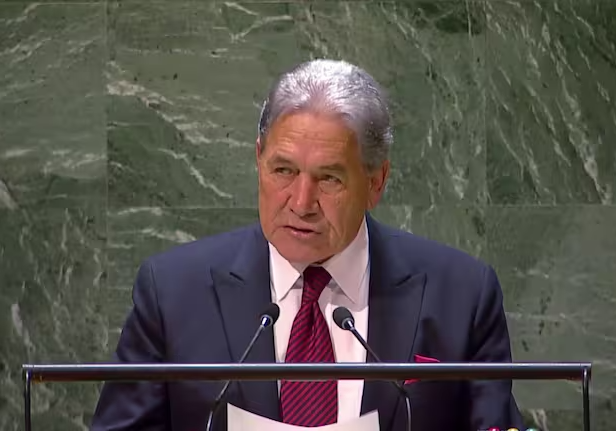Australia/Israel Review
Playing with Fire
Sep 26, 2011 | Marc Ginsberg

The Palestinian UN detour
Marc Ginsberg
The unilateralist gambit by the Palestinian Authority (PA) to ram through a resolution on Palestinian statehood in the UN General Assembly will produce little more than the mirage of a fleeting diplomatic triumph.
No matter the hoopla surrounding it, the UN vote will certainly not represent a watershed moment for Palestinian statehood. Like a well-camouflaged detour leading nowhere, the diplomatic kabuki theatre may, in reality, do more harm than good for the cause of Palestine – a cause I have passionately supported since my formative years living in the Middle East.
Quite the contrary, a Palestinian measure will yield only more opposition to de facto statehood from UN members that matter most to Palestinians: Israel, the United States, Europe and Palestine’s neighbouring Arab states. The UN General Assembly – no matter the vote – is simply by its own Charter not empowered to deliver the Promised Land.
The Palestinians know that. At the end of the day when the fireworks are over they will likely share the never-never land of enhanced status as a “non-member state” of the UN similar to the status granted the Vatican. So what?
In any objective cost-benefit analysis is this really worth the price the PA is about to force its citizenry to pay for this price of admission?
Over the past decades the Palestinians have had plenty of such Pyrrhic diplomatic breakthroughs on their long, tortuous road to independence. All were largely symbolic and none have brought the Palestinians closer to statehood. Just like the time Yasser Arafat declared Palestinian statehood in Algeria in 1988 (and received the support then of the same states that will support Abbas now) – passage of any resolution is divorced from realities on the ground.
So after the UN resolution passes will its passage accelerate de facto recognition of a Palestinian state? No. Even PA President Mahmoud Abbas admits this publicly. And the US has vowed to veto any effort to transform the diplomatic grandstanding into formal recognition by the UN Security Council.
Will the vote compel Israel to offer the Palestinians better terms to resume negotiations? No. The Israeli government has flatly stated that it views the Palestinian UN resolution as an attempt by the PA to avoid facing the hard choices it must face at the negotiating table.
Will the so-called Middle East Quartet come up with any more imaginative diplomacy to break the deadlock as a result of the vote? No. The Quartet has run out of rabbits to pull out of its hat.
Will the Obama Administration pull the plug on foreign assistance to Israel as a result of the vote in an attempt to force concessions out of Israel? Fat chance! No amount of Palestinian posturing will cause that to happen.
Simply put it produces a temporary feel-good moment. Apparently a majority of Palestinians, not surprisingly, share my assessment and do not support the UN resolution. In a recent Palestinian-taken poll, 60% of West Bank Palestinians oppose Abbas’ direction, preferring the resumption of direct negotiations.
Obviously, the majority of Palestinians are more level-headed than their leadership. They know all too well what will come next. A unilateral declaration of statehood is a recipe for financial catastrophe. The US and the EU – Palestine’s major sources of funding are bound to cut off all assistance. All of the chest-pounding in the world is not going to force Israel to enable financial assistance to continue unabated. And I daresay that not one of the countries that voted for the resolution is going to step up to the plate and refill the Palestinians’ financial lifeline. That’s a fact. Empty stomachs not a state makes.
If the majority of Palestinians prefer a return to the negotiating table rather than a vote at the UN, then why is Abbas defying his public?
First, just like the Israelis who view him in a similar vein, Abbas does not believe he has a willing counterpart on the other side of the negotiating table. Assigning blame is a fool’s errand. Both sides share responsibility here and Abbas has made it as difficult for Israeli negotiators as he protests Israelis have made it for him – he is, as we say in the law, not with clean hands. Second, missteps in US diplomacy convinced Abbas that Washington could extract major concessions from Israel without Abbas having to do the same, and he (and the rest of the Arab world) can’t seem to shake that myth. Third, stealing a chapter from the Arab Spring, Abbas would like to instigate a combined program of Fatah-Hamas civil disobedience against Israel’s occupation. There is no such thing as civil disobedience Palestinian-style. Abbas cannot control his own people let alone the Hamas terrorists he is now in bed with. Finally, to his credit, Abbas is bequeathing to the Palestinians durable state institutions which he thinks he can leverage to build international support for de facto recognition of a Palestinian state.
As appealing as these excuses may sound today, they are insufficient grounds to march into an abyss. It need not come down to this.
Abbas still has time to seize victory from the jaws of defeat. If he were so inclined, he could make the effort to transform the UN vote into a catalyst for assuaging sceptical Palestinians and fearful Israelis that renewed negotiations could lead to tangible negotiations.
Buoyed by the strong diplomatic winds at its back, a more confident Palestinian leadership should seriously consider offering Israel recognition as a Jewish state in exchange for an Israeli moratorium on further settlement construction and a resumption of final status negotiations, expanded to include Arab states. The resolution also provides adequate international incentive for Abbas to cease frolicking with the ever so fictitious right of return which he has been tossing around with reckless abandon in recent months. Doing so may delight Palestinians refugees still living in refugee camps as well as Hamas, but certainly not to peace-leaning Israelis who are increasingly inclined to view Abbas as little more than an Arafat in sheep’s clothing.
Given what the vote actually portends, one would expect the Palestinians to attempt leveraging their symbolic success into a potential strategic breakthrough. But apparently that is expecting too much of a leadership fractured by division and fatigued by Israel’s scorched earth approach to negotiations. Leave it to the Fatah leadership to live up to their adage: “the Palestinians never miss an opportunity to miss an opportunity.”
But the same cannot be said of the vote’s impact on Israel. It will certainly engender more unwelcome, hostile angst among ordinary Israelis already chastened by their rapidly deteriorating regional isolation. It inevitably will provoke retaliation which can only drive the parties further apart. If that is what the Palestinians are hoping for, well, I’d like to know how a more internationally isolated Israel is going to muster the courage to make the hard choices for peace in the votes’ wake. And having a historically Israel-adverse UN General Assembly meddle where it does not belong all adds up to a recipe for a diplomatic debacle.
So, regrettably, unless the Palestinians develop an 11th hour penchant for Machiavellian diplomacy, nothing that happens in New York will shock the parties back to the negotiating table.
And Machiavellian diplomacy is certainly wanting from the US. It is through no small fault of our own diplomatic mismanagement that the Palestinians are defying the US and hightailing it to Turtle Bay. Our most seasoned Middle East diplomats robotically resort to the same old tiresome strategies hoping for a different result – ignoring the Einstein theory in Middle East diplomacy. Failed settlement construction halts. Reprimanding Israel as if it was some ward of the realm. Engendering scepticism among Arab allies convulsed by revolts. Threatening the Palestinian Authority with financial ruin. Forfeiting domestic Congressional and public support. It’s almost hard to fault Abbas, given the shovel-ready dead-end US diplomacy yielded. Nor did it help the cause of reconciliation that former Mideast envoy George Mitchell promised more than he could deliver to the Palestinians, and instigated callow counter-productive confrontations with the Israeli Government, which according to several White House sources, only added to Obama’s political and diplomatic headaches.
Of course, much must be said about the internal dynamics within Israel’s governing coalition that also contributed to this predicament. With a Foreign Minister as hapless as he is reprobate, the Israeli Government has become increasingly spooked by the rapidly deteriorating stability in the Middle East, a breach of relations with its former allies, Turkey and Egypt, Hamas’ accord with the PA, and Iran’s inexorable march to illegal nuclear weapons development.
By his actions to the UN, Mahmoud Abbas has signaled his intention to jettison resort to a negotiated settlement – the only internationally approved path to a Palestinian state, however remote the possibility is today. Even if Abbas is using the UN route to “punish” Israel, the US deserves better, far better from Abbas and the PA.
The UN theatrics is a poke in the eye at the President’s efforts to forge reconciliation with the Arab and broader Muslim worlds. It leaves the US exposed to the prospect that it may have to defy the will of the international community even though the President passionately believes that a negotiated settlement leading to a two-state solution serves everyone’s cause.
No Arab nation has done more for the cause of Palestinians than the United States. For that matter, no other non-Muslim nation other than the US can claim the mantle. The American people have donated more to the plight of Palestinian refugees than every Arab nation combined. The US is the largest financial benefactor of the Palestinians, and has invested more excruciating time and effort to forge a durable peace than any other nation. Abbas knows the US is a champion for a two-state solution, yet is calculating that by forcing Obama’s hand at the UN he can achieve there what he could not cajole the US to deliver at the negotiating table – a chastened, more supple Israel.
If that is the legacy that Abbas wishes to leave his people when his term ends, it only will serve to place a dark shadow over the cause of Palestinian statehood.
Marc Ginsberg was US Ambassador to Morocco during the Clinton Administration. Having lived and worked in Israel, Egypt, Jordan, Saudi Arabia and Lebanon for much of his early life, he later served as an adviser on Middle East affairs to the Carter Administration, working on the Camp David Accords. © Huffington Post, reprinted by permission, all rights reserved.
Tags: Israel






